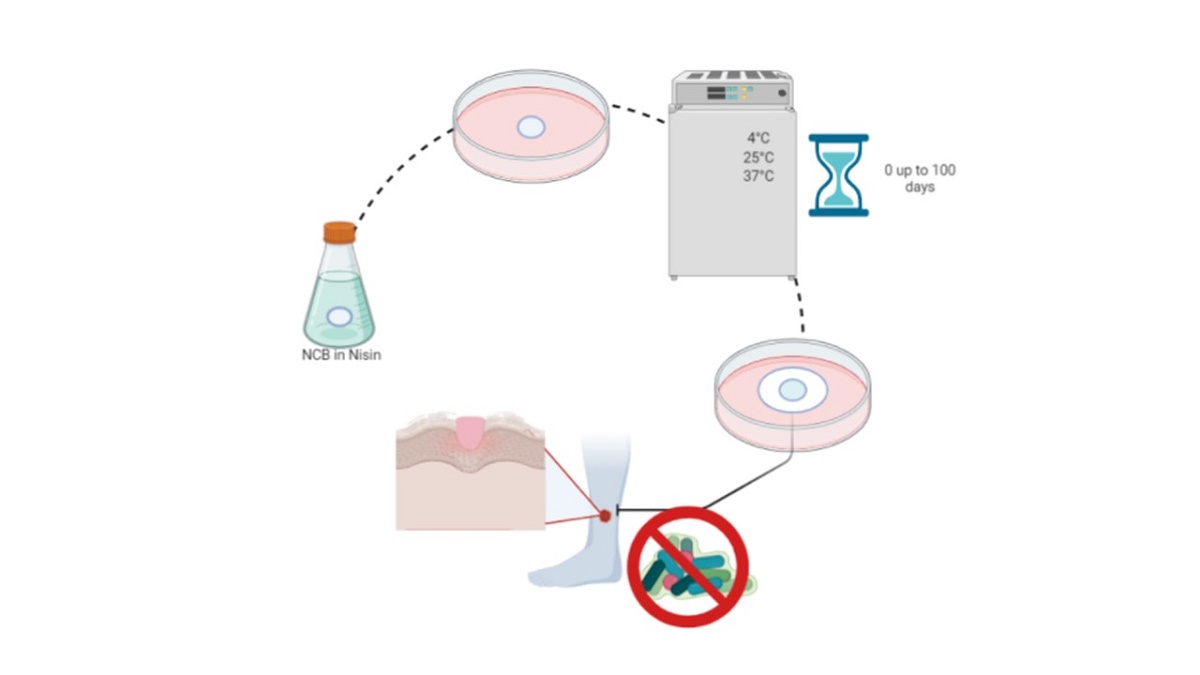Nisin is a 3.4 kDa antimicrobial peptide, produced by Lactococcus lactis (ATCC 11454). This bacteriocin can inhibit spores gemination and gram-positive bacteria development and has gained visibility in therapeutic use. The bacterial cellulose (CB) has been considered an ideal material and with high quality applied in food and medical-pharmaceutical inputs. Because of all this benefits, it is important to know the system proceeding of CB with nisin. Therefore, it was realize nisin release profile analysis of CBs was performed; analysis of the minimum inhibitory concentration (MIC) of nisin against Escherichia coli ATCC 25922, Pseudomonas aeuroginosa ATCC 9721 and Staphylococus aureus ATCC 10390; antimicrobial stability test, for 100 days at different temperatures of 4º, 25º and 37 ° C against microorganisms: S. aureus e L. sakei. The results show that nisin is released by the CB in 4 hours of contact with medium and the MIC of nisin is 78 µg/mL for S. aureus, doesn’t have gram-negative inhibition. It had stability until 100 days against L. sakei and 60 days for S. aureus. The system proved to be efficient and CB potentiated the antimicrobial action of nisin, acting as a selective barrier for other compounds present in the standard solution, serving as protection of the peptide at different temperatures. The CB loading system can be an ideal antimicrobial stability system for nisin.

